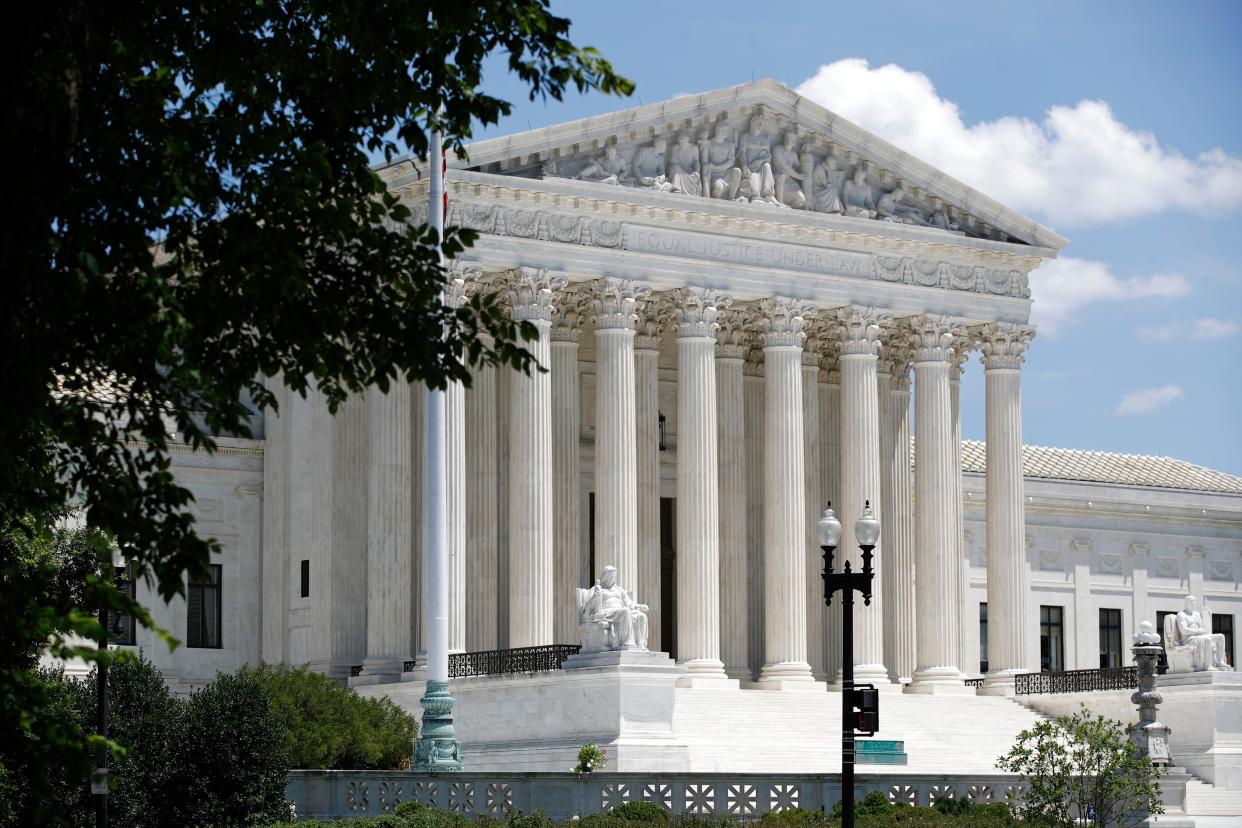Exonerated man in 'Dreams of Ada' case says U.S. Supreme Court shouldn't get involved

Lawyers for a man whose murder conviction in Oklahoma was overturned after he served more than three decades in prison urged the U.S. Supreme Court this week not to grant the state’s request to review the case.
The state of Oklahoma engaged in an “egregious, decades-long pattern of prosecutorial misconduct” to ensure that the facts of Karl Fontenot’s innocence never came to light, Fontenot’s legal team told the court.
“The courts exhaustively reviewed voluminous amounts of withheld exculpatory evidence and correctly concluded that this is the rare case in which a habeas petitioner has credibly demonstrated actual innocence,” the lawyers said.
Fontenot and Thomas Ward were convicted of killing Ada convenience store clerk Donna Denice Haraway in 1984. The case was the subject of the book, “The Dreams of Ada,” by Robert Mayer, and was also described in John Grisham’s “The Innocent Man,” which became a Netflix documentary series.
More: Oklahoma Army veteran gets probation for role in Jan. 6 US Capitol riot
Karl Fontenot released from prison in 2019
Fontenot, now 57, was tried twice and given the death penalty both times, though a retrial error led to a new sentence of life without parole.
Fontenot was released from prison after a federal judge in Oklahoma ruled in 2019 that the state committed numerous constitutional violations. The judge said newly discovered evidence about Fontenot’s alibi and other suspects in the murder provided “solid proof” of his probable innocence.
The 10th U.S. Circuit Court of Appeals upheld the judge’s ruling last year, saying that, “Almost no evidence connected him to the crime other than his own videotaped confession, a confession that rang false in almost every particular.”
The appeals court said Fontenot “has brought forth new evidence that is sufficient to unlock the actual innocence gateway and to allow his substantive claims to be heard on the merits. And Mr. Fontenot has also established that evidence suppressed by the State prior to his new trial in 1988 led to a violation of his constitutional right to due process.”
More: Human remains found, Oklahoma white supremacist leader might be connected
Oklahoma files Supreme Court petition
The state of Oklahoma filed a petition in the U.S. Supreme Court in January arguing that a federal law placing strict time limits on appeals should have barred the claims made in 2016 by Fontenot.
Evidence presented to exonerate Fontenot had been available since Fontenot’s trials in the 1980s, the state said, arguing that the high court should accept the case to clarify that “new” evidence means newly discovered or newly available evidence as opposed to newly presented evidence.
Fontenot’s lawyers at first waived the right to respond to the state, but the Supreme Court then requested a response.
Among Fontenot’s legal team is Donald B. Verrilli Jr., the U.S. solicitor general from 2011 to 2016.
The response filed by Fontenot’s lawyers this week said the “vast majority” of evidence that the state claims was available in the 1980s was actually being suppressed by the state.
“And the prosecutorial misconduct did not end with the trial: over the next thirty years, the State continued to withhold evidence, releasing it piecemeal only when compelled to do so by multiple court orders,” the lawyers told the court.
“The most recent exculpatory disclosure came in 2019, 31 years after Fontenot’s conviction.”
Justices should reject the state’s request to review the case “because the evidence in this case qualifies as ‘new’ evidence of actual innocence under any definition of new evidence,” Fontenot’s lawyers argued.
Justices may determine before the court’s term ends this summer whether to review the case.
This article originally appeared on Oklahoman: Freed man in 'Dreams of Ada' case slams state appeal to Supreme Court

